Showing 1-10 of 16 results
New SARE Video: Ecological Weed Management at the Martens Farm
Farmers nationwide are tackling the challenge of using ecological principles to manage weeds using fewer herbicides. Understanding the biology of weeds is key to helping producers adopt innovative strategies that achieve strong yields while adapting to changing consumer preferences. Three new videos from SARE illustrate how Klaas and Mary-Howell Martens manage weeds without chemicals on […]
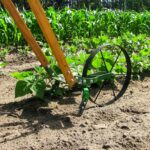
Choosing the Right Tools For Your Farm
A manual created by Ain Chike and Georgia Organics outlines hand tools, small engines, their utility descriptions and where to source them for growers in the Southeast. It allows readers to understand each tool and their practical uses. This short 4-page PDF acts as a overview for important tools to ensure efficient and productive yields […]
New SARE Video: Ecological Weed Management at Terra Preta Farm
Understanding the biology of weeds is key to managing these troublesome pests using ecological principles. Cultural practices such as crop rotations and cover crops paired with smart cultivation have helped many farmers successfully manage weeds while reducing or eliminating herbicide use. In three new videos from SARE, Shakera and Juan Raygoza share their experience controlling […]

Manage Weeds on Your Farm Video Series
In this series, experienced farmers from around the country talk about how they have found success controlling weeds by following ecological principles, and without resorting to the use of herbicides. To do so, they rely on a range of cultural and mechanical practices, including diverse crop rotations, well-timed cultivation and targeting weeds when they're at […]
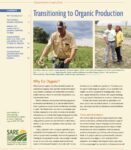
Transitioning to Organic Production
Transitioning to Organic Production lays out many promising conversion strategies, covering typical organic farming production practices, innovative marketing ideas and federal standards for certified organic crop production.
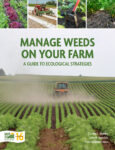
Manage Weeds on Your Farm: An Ecological Approach
SARE’s newest book, "Manage Weeds on Your Farm: A Guide to Ecological Strategies," examines the biology and behavior of common weeds and provides an integrated set of non-chemical control strategies that exploits their weaknesses.

Manage Weeds On Your Farm
Manage Weeds on Your Farm is a definitive guide to understanding agricultural weeds and how to manage them efficiently, effectively and ecologically—for organic and conventional farmers alike.
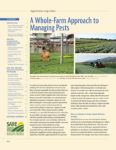
A Whole Farm Approach to Managing Pests
This 16-page bulletin helps producers—and the educators who work with them—use ecological principles across the entire farm to control pests.
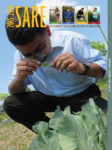
2015/2016 Report from the Field
Read about SARE-funded work in the areas of sustainable dairy cropping systems, soil health assessments, nutrient management, cover crops, beginning farmers, pollinators, technical assistance programs for women farmers, and more. This edition includes highlights of projects funded through the graduate student program, and the highly regarded Sustainable Agriculture Fellowship, a professional development program coordinated by SARE and NACAA.

Integrated Pest Management in Alabama
Organic vegetable growers in the Deep South face a constant battle with pests. In Alabama, new information is leading to better crop protection and more profitability, thanks to the work of Ayanava Majumdar, Alabama Extension entomologist and Southern SARE state coordinator. As a SARE state coordinator, Majumdar is tasked with bringing sustainable agriculture information […]